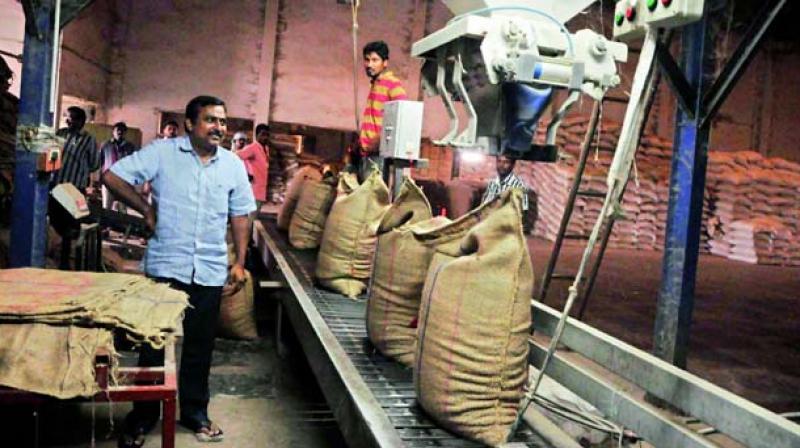Telangana Wants Security Deposits From Rice Millers

Hyderabad: The state civil supplies department has decided to seek bank guarantees and security deposits from millers based on their track record, following the recommendations of the Cabinet sub-committee on paddy-related issues.
Heeding the repeated pleas of the millers, the civil supplies department has decided to provide additional milling charges of Rs 30 for coarse variety and Rs 40 for fine variety paddy.
This, the department said, has been decided as milling charges have not been revised since 2018. The increase has been allowed with the precondition that the custom-milled rice has to be delivered within the due date fixed by the government of India.
In case of dispute over whether a given stock is a coarse or fine variety, the agriculture extension officers (AEO) have been given the responsibility of deciding in 24 hours after the miller raises a complaint online within 48 hours.
An AEO will be assigned to every mill for this purpose and the information about which will be displayed at the paddy purchase centres. Any dispute arising on the AEO’s decision will be referred to a revenue divisional committee and district-level committee.
The paddy procured will be stored at the agriculture market committees or state warehousing corporation and allocated to the millers who deliver on time. This, the policy GO says, will help small millers to get the allocation in small quantities also against bank guarantees and security deposit.
The Raw Rice Millers Association, however, expressed displeasure at making the additional milling charges conditional. “The delay could happen because of gunny bags issue or godown availability. These are not issues in our hands. Further, our association, which represents 2,850 millers, was not invited for talks and only the boiled rice millers association was called for talks,” said P. Ganapathi Reddy, the president of the Raw Rice Millers Association.
Airing the difficulties in meeting the norms for supply of fine rice, Ganapathi Reddy said, “Milling a quintal of paddy is yielding only 58 to 59 kgs of rice as against the expected 67 kgs which we have to deliver. The installation of blending machines (for mixing fortified rice kernels), colour sortex machines (which remove impure varieties), increased power charges have increased our costs. Millers in this situation are not in a position to give bank guarantees.”
Elaborating further, he explained the use of Sortex machines reduces the quantity by three to four kgs per quintal to deliver fine rice without impurities. If the fine rice percentage is not amended, the government has to pay `300 as compensation. Milling charges should be increased to `150 per quintal and pending payments, custodian charges, transport done for civil supplies and milling charges.
“We are being told the norms were fixed by the Central government itself but they are inimical to the survival of the industry which supports the livelihood of lakhs of people,” Ganapathi Reddy said.

